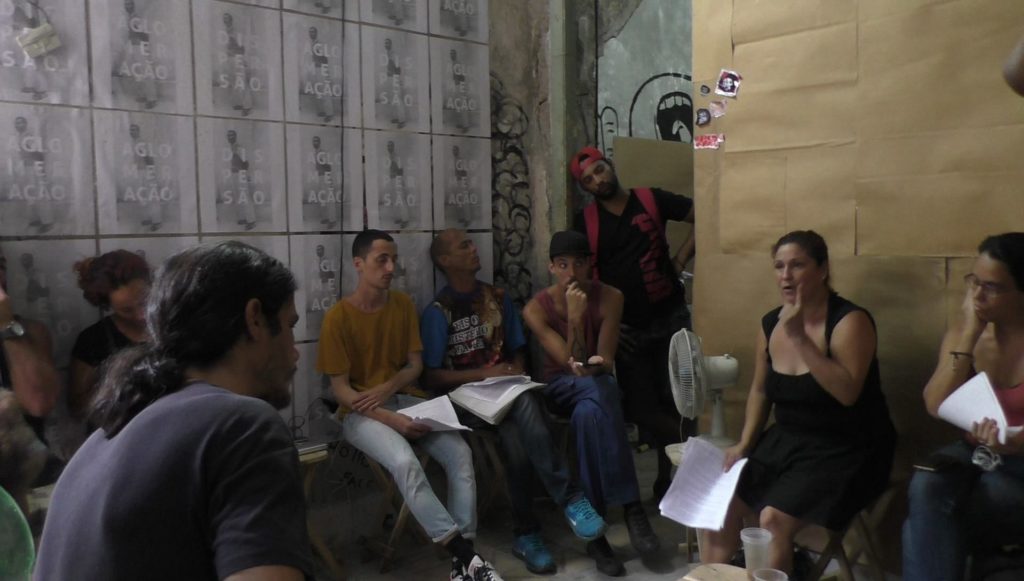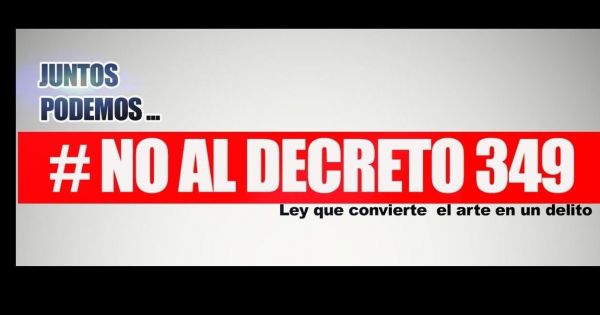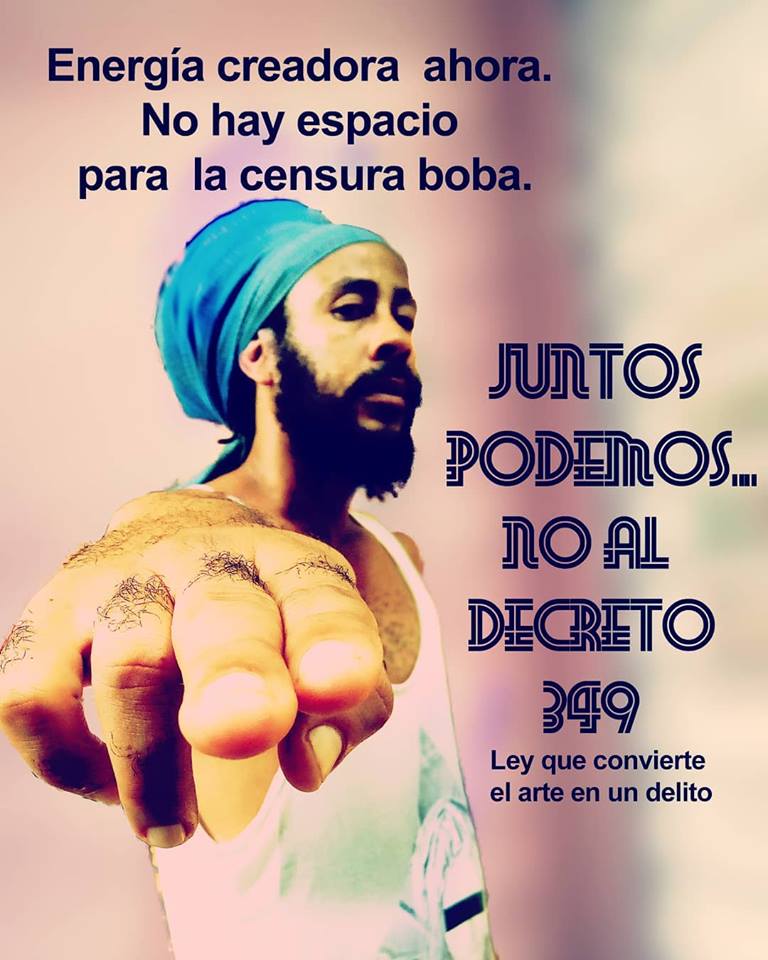Politics
Tania Bruguera and Other Artists Are Protesting a New Cuban Law That Requires Government Approval of Creative Production
Coco Fusco is also among the artists opposing the new legislation.

Coco Fusco is also among the artists opposing the new legislation.

Sarah Cascone

The Cuban government says it must pre-approve all independent cultural activity starting December 1, according to legislation first published in the official state paper, Gaceta de Cuba, in July. But artists are pushing back against Decree 349, as the legislation is titled.
Artistas Cubanxs en Contra del Decreto 349 have created a Facebook page and published an opposition letter to Cuban president Miguel Diaz Canel, who has been in power since April. “We believe that Decree 349 does not present a sound vision of the future for Cuban culture,” reads the letter. “The new laws restrict the creativity of the Cuban people, and criminalize[s] independently produced art, limiting the ability to determine who can be an artist to a state institution.”
The signatories include artists Tania Bruguera, Coco Fusco, and Enrique Risco, as well as human rights attorney Laritza Diversent and curator Yanelys Nuñez. They are calling for a dialogue between state officials and Cuban artists, who they say were not consulted about the new legislation. So far the letter has drawn more than 300 additional signatures.
“The law will empower a new cadre of inspectors to act as roving censors that can shut any cultural event down at a moment’s notice,” wrote Fusco in an email sent to artnet News and other journalists. “Not only will artists be penalized with fines, possible confiscation of their equipment, and eventual arrest—any owner of an establishment that provides space and resources for performances and events will also be liable.”

Artistas Cubanxs en Contra del Decreto 349. Image courtesy of Artistas Cubanxs en Contra del Decreto 349.
Under the decree, bars and music venues cannot hire musicians to perform without government approval, and artists will need state permission to sell their work. It also bans the sale of “books with content that is prejudicial to ethical and cultural value[s].”
The law appears aimed at rappers and reggaeton musicians in particular, Fusco says, but will “also affect other artists who exhibit or publish independently. There is an implicit class and race bias in this legislation in that the targeted cultural production is authored by black musicians and poorer, self-taught artists.”
Several artists have staged public protests about the decree. According to Fusco, police detained Yanelys Nuñez Lleyva and Otero Alcantara in order to prevent an August concert staged to oppose the legislation and physically assaulted more than a dozen musicians in attendance. And at a July performance in front of Havana’s Capitolio building, artists Luis Manuel Otero Alcantara, Amaury Pacheco, and Soandry Del Rio were among those arrested, as reported by Translating Cuba.
Earlier this year, Alcantara co-founded the #00Bienal de La Habana, an independent art biennial organized as an alternative to the state-funded Havana Biennial, which had its 2018 edition postponed because of damage caused by Hurricane Irma.

Artistas Cubanxs en Contra del Decreto 349. Image courtesy of Artistas Cubanxs en Contra del Decreto 349.
The government cracked down on the event, preventing some artists from entering the country and threatening others with detention if they did not leave voluntarily. The Cuban Artists and Writers Union denounced the crowd-funded exhibition as being “organized with funds from the counter-revolution’s mercenaries.”
The recently published letter on the legislation addressed this statement as well. “The fact that a Cuban artist manages to finance his or her creations independently does not make him or her into an opponent of the government—millions of individuals around the world have found opportunities to express themselves outside established cultural institutions and industries,” it says.
“The history of the arts demonstrates that the questioning of established systems of thought is the motor of aesthetic progress,” the letter reads. “Without it, art would not have advanced.”